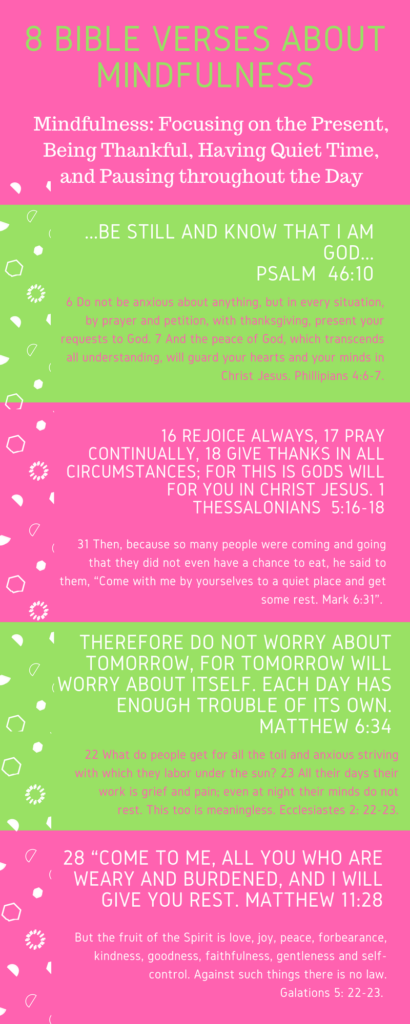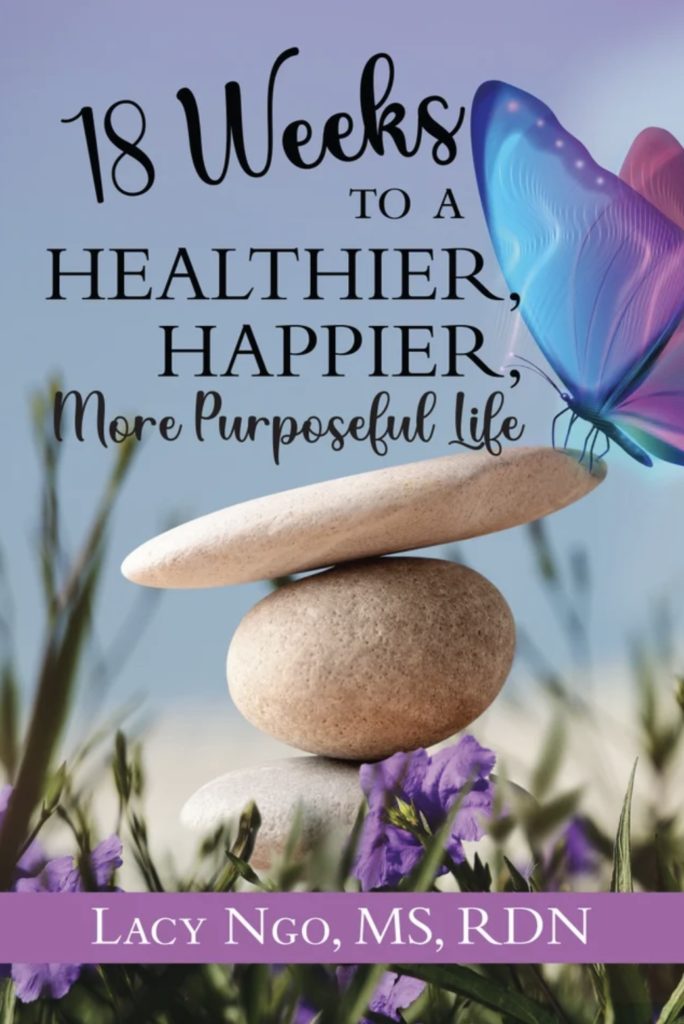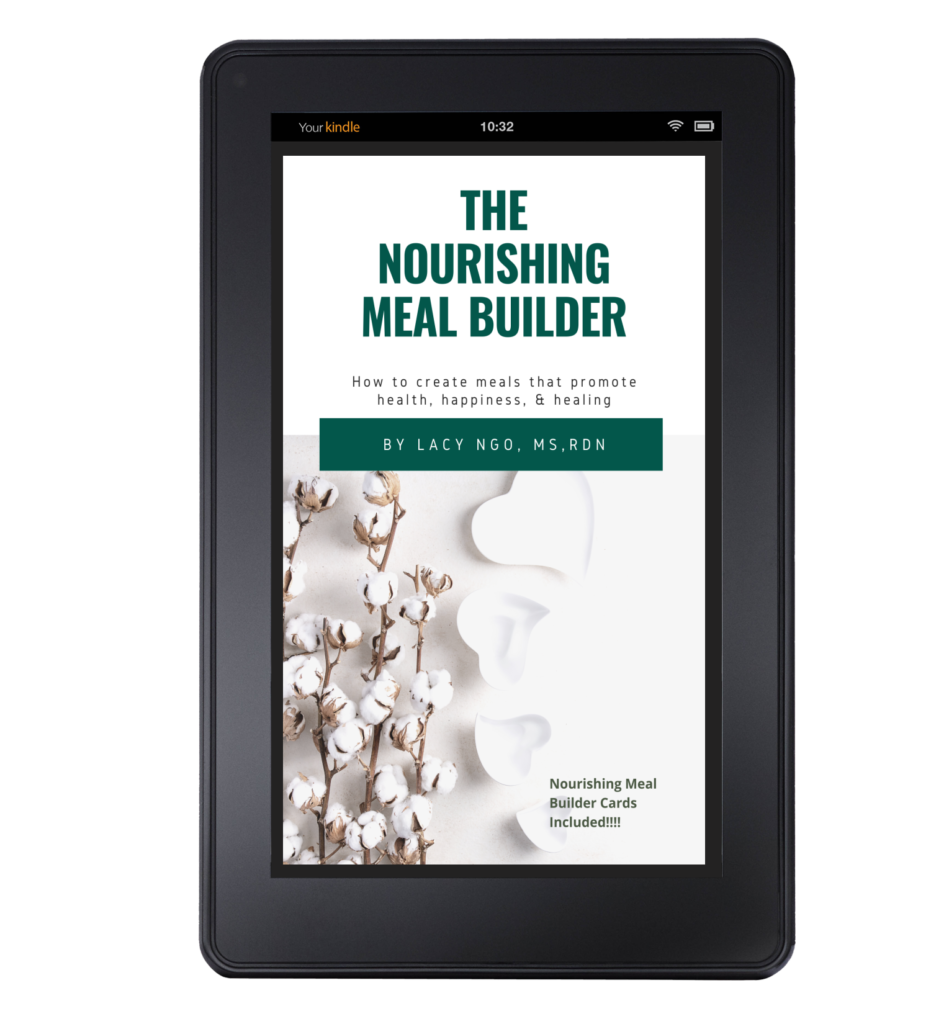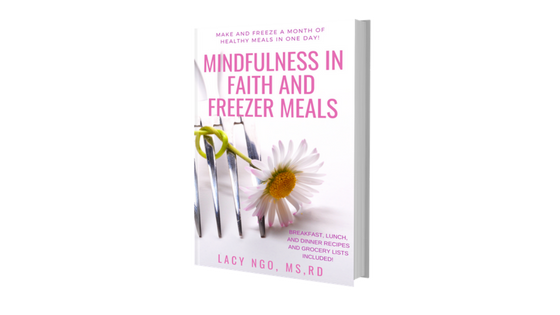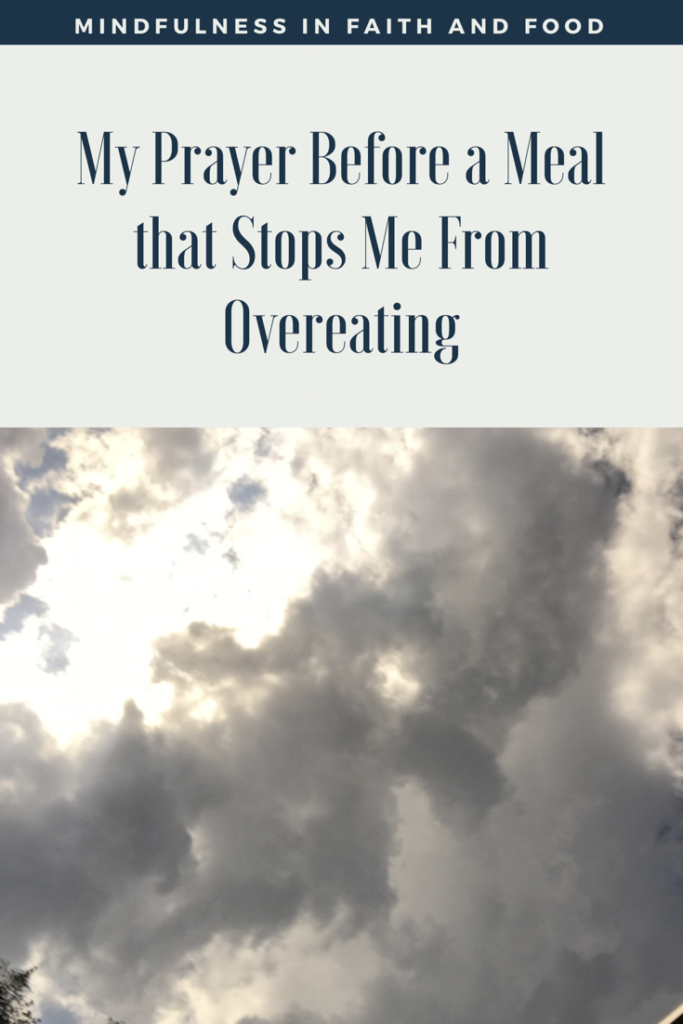This blog on faith-based mindful living has been updated and is adapted from my book, 18 Weeks to a Healthier, Happier, Most Purposeful Life
What do you want your life to look like? What about your children’s life? Are there things you would change? What does YOUR healthiest, happiest, and most meaningful life look like?
I am a list person, so when I am asked this question, my immediate impulse is to make a list.
This site contains affiliate links (See full disclosure here.)
My Mindful Living Checklist (Does your list look similar to mine?):
1.My greatest desire is to glorify God in all that I do. I want to show God’s love through kindness and giving. My prayer is that I listen for God’s guidance in every situation because when I listen to God, amazing things happen, and I WANT TO BE AMAZED!!!
2. I wish to have a peaceful and positive life and a grateful attitude. I want to enjoy the little moments by taking the time to notice God’s world and soak it up!
3. We humans seem to have a natural desire to work and create. We want to have meaning and purpose in our lives. This is true for me too. In my ideal life, I want to learn, grow, and work. I want to create something new, and in some small way make the world better. I want to challenge my mind through reading and learning from God and others, and I want to challenge my body through physical activity.
4. Just as I desire to work, grow, and be challenged, I equally want to have time to rest, relax, and play. Sometimes finding the time to relax is the most difficult challenge in life, and yet so important for our health and our ability to serve God and others.
What Do We Want for Our Children?
Of course, I want these things, even more for my children. One of my greatest joys is watching my children as they feel God’s presence. They look so peaceful and content. My 2ndgreatest joy is seeing my children show kindness to others, and my third greatest joy is witnessing my children living in the moment and appreciating the little things.
We may all have different wishes and desires, but when we break them down, I’m guessing that this list is at the heart of most of our desires…

But How Does Mindful Living Help Us Become This Person and Live this Healthy, Happy, Purposeful Life?
Well, I don’t fully know all the answers, but I do know a few things that help, and those are:
- Spending time with God
- Practicing faith-based mindful living techniques including Mindful eating
- Mindfully eating foods from God’s earth that nourish our mind, body, and soul
- Getting adequate rest, sleep, and physical activity
So that is where my book, 18 weeks to a Healthier, Happier, More Purposeful Life comes in. This book is designed to help you live YOUR healthiest, happiest, most meaningful life through faith-based mindful living and nutrition.
The Life Changing Benefits of Mindful Living
There are many benefits to incorporating the mindfulness techniques discussed in 18 weeks to a Healthier, Happier, More Purposeful Life. In fact, mindfulness techniques are so beneficial that schools have even started implementing mindfulness programs.
Although more research is needed, current research indicates that implementing Mindfulness programs in schools may improve social behaviors, mood, stress levels, and even academic performance and test scores. Schools are even reporting fewer suspensions, detentions, violent incidents, principal visits, bullying, and classroom disruptions since incorporating mindfulness programs!
The Benefits of Faith-Based Mindful Living are Overwhelming
If you think about it, these results make since, don’t they? Practicing mindfulness techniques can relieve stress and help us have better self-control. When we have less stress and learn to have more self-control, we tend to make better choices. Less ideal choices can sometimes cause even more stress, which brings us full circle. Furthermore, aren’t we better able to focus and learn when our brains are calm verses stressed?
So you can see how mindfulness activities can be so impactful, but for me, the most profound impact happens when I combine faith and mindfulness.
In 18 Weeks to a Healthier, Happier, More Purposeful Life, We Talk About:
1. Mindfully focusing on God’s presence in every moment. One aspect of mindfulness is about focusing on being present. But with faith-based mindfulness, you are focusing on how God is present with you in that very moment….
2. …And while focusing on God’s presence you get to notice all the gifts from God and the beautiful little things in God’s world.
Let’s go back to that “Healthy, Happy, Meaningful Life list” because Faith-based mindfulness helps me fulfill that list like nothing else.
Here is How My Life Has Been Transformed Through Faith-based Mindful Living:
- I listen to God more: Listening to God helps me make better choices. I’m not letting negative emotions take control of my actions. (At least not as often, anyway)
- Now I am more at peace and filled with comfort because I am noticing God is with me everywhere.
- I get to have more goose-bump-“I’m awe-struck” moments because when I intentionally focus on God in the present moment, I actually see what God is doing in my life and the lives of others around me. By focusing on God in the present moment, I get to experience the feeling of amazement more often, and I WANT TO BE AMAZED!!! (Don’t we all want to be beautifully amazed?)
Mindful Living Translates to Mindful Eating: The Prayer Before a Meal That Stops Me from Over Eating and Other Mindful Eating Techniques
Did you know learning to pause and pray is what finally helped me (a dietitian) stop overeating?
When you mindfully eat, you get to experience ALL these faith-based mindfulness benefits and more. Mindful eating gives us the opportunity to focus on God’s presence, feel gratitude for God’s gift of food, and rest our brain! We get to have mini mindfulness moments with God EVERY. TIME. WE. EAT!
With mindful breathing, we are pausing and centering out minds on one thing-breathing. When we are mindfully eating, we are still pausing and centering our brain on one thing, but this time that one thing is eating. With faith-based mindful eating, we are resting our brain by focusing on God and the food God provided.
Some of the Other Benefits to Mindful Eating Are:
Weight Loss
I don’t want to focus too much on this because all sizes can be healthy. Some people are naturally smaller and some naturally weigh more. We have different builds and genetics. Plus, other things like medications, medical conditions, and even uncontrollable seasons in life can affect weight.
But I also don’t what you to feel that wanting to lose weight is somehow wrong. You may want to see if weight loss will help you have more energy or help with a medical condition. Maybe you feel like you could keep up with your children more if you carried less weight or maybe you want to see if weight loss can help with joint pain. There are reasons you may desire weight loss, and fortunately mindful eating can help with weight loss while also helping you stop that food obsessing often associated with dieting. Mindful eating helps you feel full and notice your hunger/satiety cues. Moreover, the desire to binge decreases because you are actually enjoying your food ALL THE TIME.
Relieves Stress
Like the mindfulness practices above, Mindful eating is a stress reliever. Stress can cause weight gain so this is yet another way mindful eating helps with weight loss.
May Reduce the Risk of Many Chronic Conditions
Mindful eating can aid in digestion. How? When you mindfully eat, you take your time chewing your food. Chewing thoroughly gives your stomach enzymes more surface area to do their work, which again promotes healthy digestion and absorption.
Mindful Eating and Gut Health
These reasons, along with the ability to relieve stress, are how mindful eating can aid in digestion. Healthy digestion and stress relief promotes a healthy gut. Poor gut health is related to inflammation and reduced immune function. Gut health, inflammation and immunity are all linked to many condition including IBS, Crohn’s, Autoimmune Disease, Alzheimer’s, heart disease, stroke, brain function and focus, mood and even depression and anxiety, to name a few. So anything that promotes a healthy gut is something worth looking into in my book. (Fortunately, a mindful eating guide IS included in my books!)
How Can Nutrition Help You Live a Healthier, Happier, and More Meaningful Life?
Okay, this feels like a good place to talk a little about nutrition, and how in the world nutrition helps my family and me become those people and live that life listed in the opening paragraph. Healthy foods can help us focus, improve our moods, and give us the energy we need to serve God and others; learn and grow, and live a more positive life.
In 18 Weeks to a Healthier, Happier More Purposeful Life you are provided with a list of nutrients and foods that promote cognitive function, boost mood, support the immune system, and reduce the risk of chronic disease and some autoimmune and neurodegenerative diseases. I know our children’s learning, behavior, and mood are important to us, so I picked ingredients that can help with focus, attention, behavior, and immunity. These amazingly beneficial foods are included in the Meal Builder Table in this book. With this table, you will be able to build a healthy meal on the spot. The possibilities are endless! You will be amazed at how easy it is to throw together a nutrient-packed meal!
Be Inspired to Take that Mindful Living Step
18 Weeks to a Healthier, Happier, More Purposeful Live takes you on an inspiring and uplifting journey with me, a dietitian who has lost 50 pounds through faith-based mindful nutrition. Thanks to faith-based mindfulness and nutrition, I went from being weight obsessed to feeling healthy and happy in my own body. Ironically, during the process, I ended up, not only losing weight but also strengthening my walk with God. Now she feels healthier than ever, AND she truly enjoys eating! I am able to feed my mind, body, and soul nourishing foods and feel good in my own body without weight obsessing.
Related Posts
Cook Once a Month, Eat Healthy Everyday
My Prayer Before a Meal that Stopped Me from Overeating
The One Thing I Did to Lose Weight and Strengthen My Walk with God
Resources
- Aucoin M, Lalonde-Parsi M-J, Cooley K. Mindfulness-Based Therapies in the Treatment of Functional Gastrointestinal : A Meta-Analysis. Evidence-based Complementary and Alternative Medicine : eCAM. 2014;2014:140724. doi:10.1155/2014/140724.Bakosh LS. Doctoral dissertation. 2013. Investigating the effects of a daily audio-guided mindfulness intervention for elementary school students and teachers. Available from ProQuest Dissertations & Theses database. (UMI No. 3618722)
- Bakosh LS, Snow RM, Tobias JM, Houlihan JL, Barbosa-Leiker C. Maximizing mindful learning: An innovative mindful awareness intervention improves elementary school students’ quarterly grades. Mindfulness. 2015 Advance online publication.
- Diamond A, Barnett WS, Thomas J, Munro S. Preschool program improves cognitive control. Science. 2007;318:1387–1388. [PMC free article] [PubMed]
- Parker AE, Kupersmidt JB, Mathis ET, Scull TM, Sims C. The impact of mindfulness education on elementary school students: evaluation of the Master Mind program. Advances in School Mental Health Promotion. 2014;7:184–204. [PMC free article] [PubMed]
- Parker AE, Kupersmidt JB, Willoughby MT. An investigation of mindfulness education and self-regulation in middle school classrooms. 2014. Manuscript in preparation.
- Black DS, Fernando R. Mindfulness training and classroom behavior among lower-income and ethnic minority elementary school children. Journal of Child and Family Studies. 2014;23:1242–1246. [PMC free article] [PubMed]
- Britton WB, Lepp NE, Niles HF, Rocha T, Fisher NE, Gold JS. A randomized controlled pilot trial of classroom-based mindfulness meditation compared to an active control condition in sixth-grade children. Journal of School Psychology. 2014;52:263–278. http://doi.org/10.1016/j.jsp.2014.03.002. [PMC free article] [PubMed]
- Hofmann SG, Sawyer AT, Witt AA, Oh D. The effect of mindfulness-based therapy on anxiety and depression: A meta-analytic review. Journal of Consulting and Clinical Psychology. 2010;78:169–183. [PMC free article] [PubMed]
- Semple R, Droutman V, Reid BA. Mindfulness Goes to School: Things Learned (So Far) from Research and Real World Experiences. Psychol. Sch. 2017 Jan 54 (1): 29-52. https://www.ncbi.nlm.nih.gov/pmc/articles/PMC5405439/
- Liu, R. T. (2017). The microbiome as a novel paradigm in studying stress and mental health. American Psychologist, 72(7), 655-667.http://dx.doi.org/10.1037/amp0000058
- Mayer E, Knight R, Mazmanian S, Cryan J, Tillisch K. Gut Microbes and the Brain:Paradigm Shift in Neuroscience. Journal of Neuroscience. 2014;34(46):15490-15496. doi:10.1523/jneurosci.3299-14.2014.
- Rogers G, Keating D, Young R, Wong M, Licinio J, Wesselingh S. From gut dysbiosis to altered brain function and mental illness: mechanisms and pathways. Molecular Psychiatry. 2016;21(6):738-748. doi:10.1038/mp.2016.50.
Copyright © 2019 Mindfulness in Faith and Food.
You are free to retain any and all content here for personal use, but need permission to use it anywhere else on the internet.


